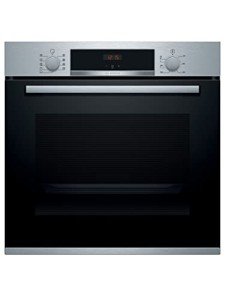The 10 Most Scariest Things About Intergrated Oven
Understanding Integrated Ovens: A Comprehensive Guide
In the world of cooking innovation, integrated ovens have actually emerged as a popular home appliance that combines performance, benefit, and design. As home cooking progresses, integrating state-of-the-art solutions into kitchens has become progressively preferable. This article dives into what integrated ovens are, their functions, advantages, and contrasts to traditional ovens.
What is an Integrated Oven?
An integrated oven is a built-in kitchen device designed to fit perfectly within kitchen cabinetry. Unlike freestanding ovens, which inhabit floor space and are typically large, integrated ovens are designed to be hidden behind kitchen doors, producing a streamlined look. These ovens are frequently part of a total kitchen suite and can consist of alternatives like convection, steam, and combination ovens, offering flexibility for various cooking needs.
Secret Features of Integrated Ovens
- Space-saving Design: Integrated ovens occupy less square video footage while supplying sufficient cooking area, making them ideal for little kitchen areas.
- Aesthetic Appeal: They blend harmoniously with cabinets, contributing to a cohesive kitchen design.
- Multiple Cooking Functions: Many integrated ovens feature numerous cooking modes, including baking, grilling, steaming, and more, accommodating varied culinary methods.
- Smart Technology: Features like touchscreens, Wi-Fi connection, and programmable settings enhance user benefit and precision.
- Energy Efficiency: Many integrated ovens are developed to utilize energy more effectively than conventional ovens, decreasing electrical power consumption and cooking times.
Types of Integrated Ovens
Integrated ovens are available in various types, each designed to match different cooking designs and choices:
- Single Ovens: The most common type for daily cooking and baking.
- Double Ovens: Suitable for jobs requiring synchronised cooking at various temperatures.
- Steam Ovens: Ideal for health-conscious cooking, maintaining nutrients while making sure moisture.
- Microwave Ovens: Often integrated with other ovens for adaptability and fast cooking.
- Combi Ovens: Hybrid systems that combine standard and steam cooking, offering an exceptional all-in-one option.
Benefits of Integrated Ovens
The benefits of integrated ovens extend well beyond their modern-day looks. Here are some notable benefits:
- Enhanced Kitchen Design: They use a streamlined, contemporary appearance that improves the total kitchen aesthetic.
- Improved Functionality: The range of cooking techniques and functions caters to flexible cooking requirements.
- Increased Value: Integrated appliances can increase property worth, making homes more attractive to potential purchasers.
- Relieve of Use: Intuitive controls and features simplify the cooking procedure, allowing for greater cooking expedition.
- Safety Features: Many integrated ovens include additional security features to prevent mishaps, specifically essential in household homes.
Contrast Table of Integrated Ovens vs. Traditional Ovens
Function
Integrated Ovens
Conventional Ovens
Style
Built-in, smooth with cabinetry
Freestanding, takes up space
Cooking Functions
Several (typically customizable)
Generally standard functionalities
Area Efficiency
Enhanced for small kitchens
Requires more area around the unit
Energy Efficiency
Typically more energy-efficient
Can vary substantially
Smart Technology
Many models include wise combination
Standard ovens typically do not have wise features
Visual Appeal
Modern, integrated into the kitchen design
More noticeable, can interfere with design
Factors to consider Before Purchasing an Integrated Oven
Picking the ideal integrated oven involves several important aspects:
- Space Availability: Before purchase, measure your readily available kitchen area to make sure a good fit.
- Cooking Needs: Identify what types of cooking you regularly do to pick the suitable features.
- Budget: Integrated ovens differ significantly in cost, so budget considerations are important.
- Setup Requirements: Professional setup may be essential, including to the overall cost.
- Brand name Reliability: Research brand names and read evaluations to guarantee you choose a trusted maker.
Regularly Asked Questions (FAQs)
1. Are integrated ovens more expensive than standard ovens?Yes, integrated ovens tend to be more expensive upfront due to their advanced innovation and design. Nevertheless, they can enhance the general worth of your kitchen. 2. Can integrated ovens be installed anywhere?No, integrated ovens need to fit within particular cabinets styles. It's essential to prepare your kitchen layout before picking an integrated oven. 3. Do integrated ovens require expert installation?While some homeowners may opt to set up integrated ovens themselves, expert installation is generally recommended to guarantee security and proper function. 4. How do
I keep my integrated oven?Regular cleaning is essential. Use Electric built in oven and hob packages -cleaning function (if available ), and keep the oven doors and racks tidy after each use.
5. Can I link my integrated oven to wise devices?Many modern integrated ovens are created with clever functions, permitting you to manage them through mobile phone or voice commands. Integrated ovens represent the next evolution in kitchen appliances, combining modern-day style with cutting edge cooking technology. They not only enhance the kitchen's visual appeal but also provide flexible cooking functionalities matched for numerous cooking skills and choices. Selecting an integrated oven needs cautious factor to consider of area, cooking needs, and spending plan, however the possible advantages, consisting of boosted kitchen looks and increased property value, frequently make them a rewarding financial investment. With the best integrated oven, culinary enthusiasts can elevate their cooking experience to brand-new heights. 